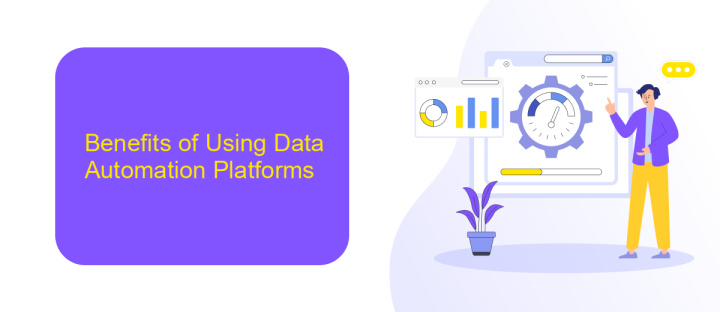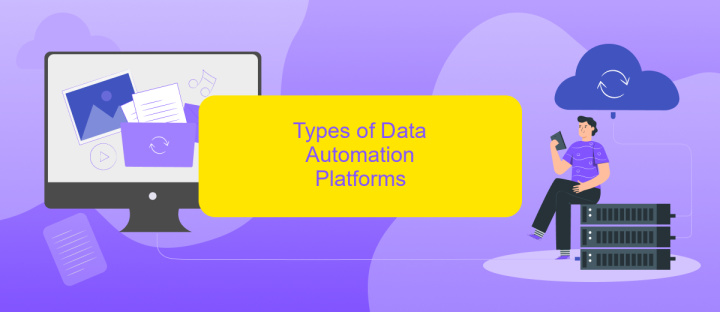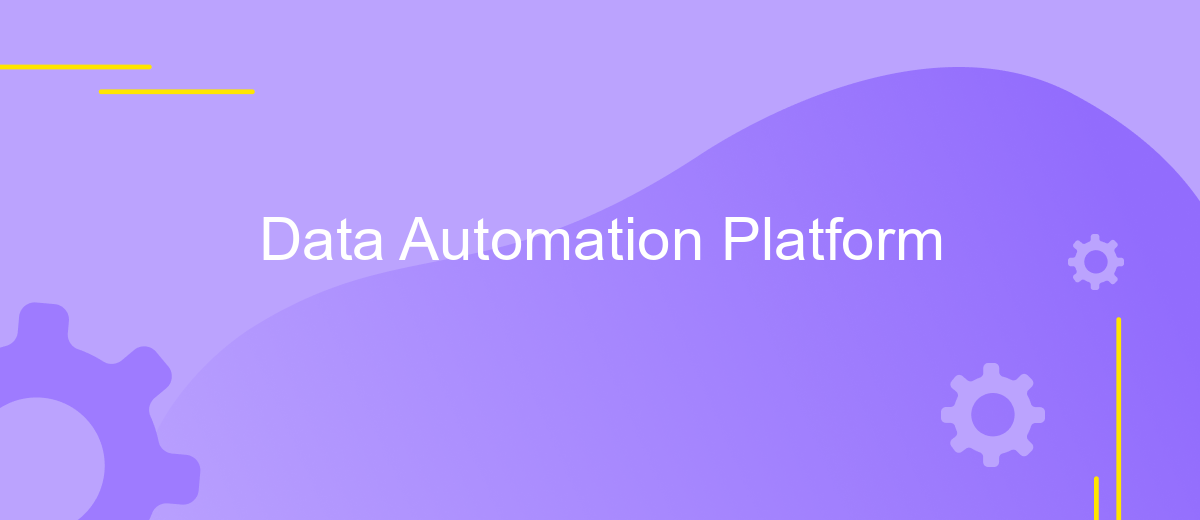Data Automation Platform
In today's fast-paced digital landscape, businesses are increasingly turning to data automation platforms to streamline operations and enhance decision-making. These sophisticated tools enable seamless data integration, real-time analytics, and automated workflows, empowering organizations to harness the full potential of their data. This article explores the key features, benefits, and implementation strategies of data automation platforms, offering insights into how they can revolutionize your business processes.
Introduction to Data Automation Platforms
Data automation platforms are transforming the way businesses handle their data by automating repetitive tasks and streamlining data workflows. These platforms integrate with various data sources, tools, and applications to collect, process, and analyze data efficiently. By leveraging data automation, organizations can reduce manual efforts, minimize errors, and enhance decision-making processes.
- Automated data collection from multiple sources
- Real-time data processing and analysis
- Seamless integration with existing tools and systems
- Enhanced data accuracy and consistency
- Scalable solutions to accommodate growing data needs
Implementing a data automation platform can significantly boost productivity and provide valuable insights for strategic planning. As businesses continue to generate vast amounts of data, the need for efficient and reliable data automation solutions becomes increasingly critical. Embracing these platforms enables organizations to stay competitive and make data-driven decisions with confidence.
Benefits of Using Data Automation Platforms

Implementing a Data Automation Platform can significantly enhance the efficiency and accuracy of data management processes. By automating repetitive tasks, businesses can save valuable time and resources, allowing employees to focus on more strategic activities. Automation reduces the risk of human error, ensuring that data is consistently accurate and reliable. This leads to better decision-making and improved overall performance.
Data Automation Platforms also facilitate seamless integration with various software and services, streamlining workflows and enhancing productivity. For instance, ApiX-Drive offers robust integration capabilities, enabling businesses to effortlessly connect different applications and automate data transfers. This not only simplifies the integration process but also ensures that all systems work harmoniously together, providing a unified data ecosystem. Ultimately, the use of Data Automation Platforms leads to increased operational efficiency, cost savings, and a competitive edge in the market.
Types of Data Automation Platforms

Data automation platforms are essential tools for managing and optimizing data workflows in various industries. They streamline processes, reduce human error, and ensure data accuracy. There are several types of data automation platforms, each catering to different needs and functionalities.
- ETL (Extract, Transform, Load) Platforms: These platforms focus on extracting data from various sources, transforming it into a suitable format, and loading it into a target database or data warehouse.
- Data Integration Platforms: These tools integrate data from multiple sources, providing a unified view and enabling seamless data flow across different systems.
- Data Governance Platforms: These platforms ensure data quality, compliance, and security by implementing policies and procedures for managing data assets.
- Robotic Process Automation (RPA) Platforms: These platforms automate repetitive tasks by mimicking human actions, thereby increasing efficiency and reducing manual intervention.
Choosing the right data automation platform depends on the specific requirements and goals of an organization. By understanding the different types available, businesses can make informed decisions to enhance their data management capabilities and drive better outcomes.
Implementation and Best Practices

Implementing a Data Automation Platform can significantly enhance your data management processes, but it's essential to follow best practices to maximize efficiency. Start by thoroughly understanding your organization's data needs and workflow requirements. This will help in selecting the right tools and technologies that align with your business objectives.
Once you've identified the appropriate platform, ensure a smooth integration with your existing systems. This involves setting up data pipelines, configuring data sources, and establishing robust data governance policies. It's crucial to involve key stakeholders from the beginning to ensure that the platform meets their needs and expectations.
- Conduct a comprehensive data audit before implementation.
- Prioritize data security and compliance with relevant regulations.
- Regularly monitor and optimize data workflows for performance.
- Provide ongoing training and support for your team.
Lastly, continuously review and adapt your data automation strategies as your business evolves. Regular feedback loops and performance assessments will help in fine-tuning the platform, ensuring it remains aligned with your goals and delivers maximum value. Adopting these best practices will pave the way for a successful implementation of your Data Automation Platform.


Case Studies and Success Stories
One of the most compelling case studies involves a leading e-commerce company that leveraged our Data Automation Platform to streamline their order processing and inventory management. By integrating ApiX-Drive, they were able to automate data flow between their online store, warehouse, and accounting systems. This not only reduced manual errors but also improved order fulfillment speed by 30%, leading to a significant increase in customer satisfaction and repeat purchases.
Another success story comes from a healthcare organization that needed to manage patient data across multiple systems. With the help of our platform and ApiX-Drive, they integrated their electronic health records, appointment scheduling, and billing systems. This seamless integration enabled real-time data updates, drastically reducing administrative workload and enhancing patient care. As a result, the organization saw a 25% increase in operational efficiency and a marked improvement in patient outcomes.
FAQ
What is a Data Automation Platform?
How can a Data Automation Platform benefit my business?
What types of data sources can be integrated with a Data Automation Platform?
Is it difficult to set up and configure a Data Automation Platform?
How secure is a Data Automation Platform?
Time is the most valuable resource for business today. Almost half of it is wasted on routine tasks. Your employees are constantly forced to perform monotonous tasks that are difficult to classify as important and specialized. You can leave everything as it is by hiring additional employees, or you can automate most of the business processes using the ApiX-Drive online connector to get rid of unnecessary time and money expenses once and for all. The choice is yours!

